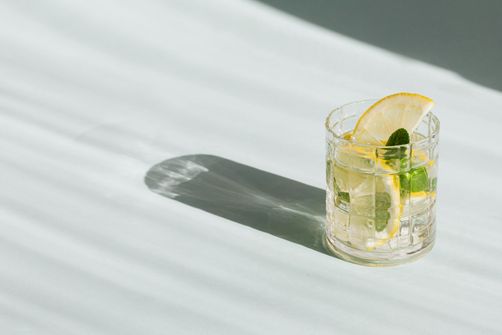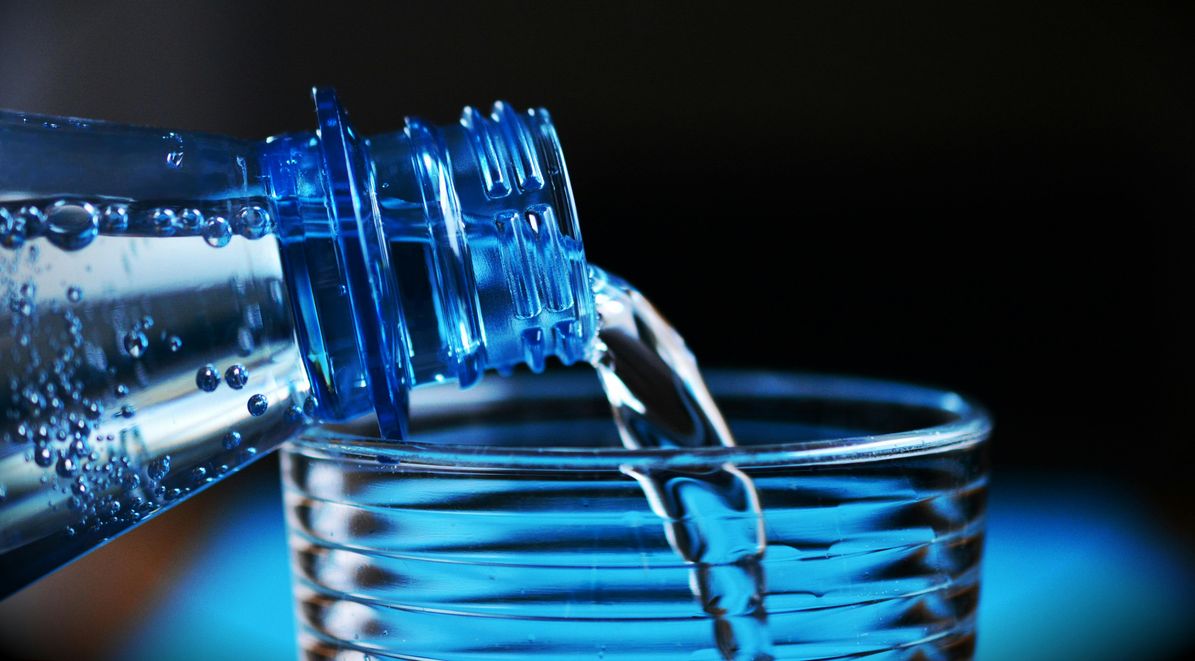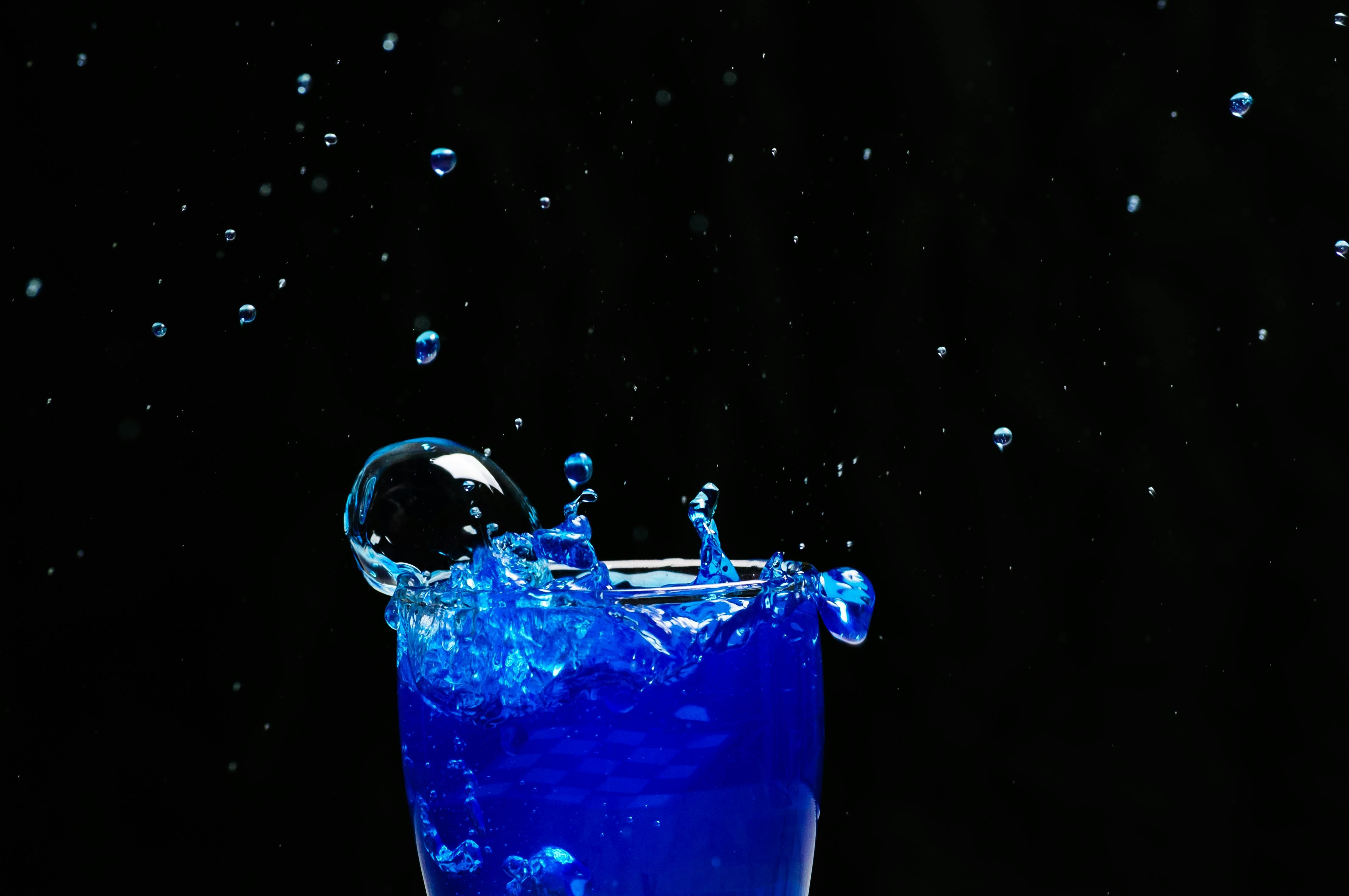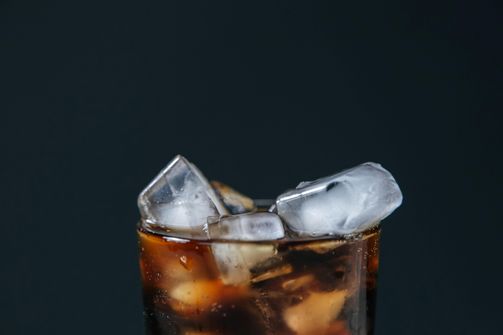
Mint and Intermittent Fasting: Does It Break Your Fast?
If you're like me and have jumped on the intermittent fasting train, you might be wondering if that fresh mint in your water or smoothie is going to m...

You know what’s sparked some major debate lately in the intermittent fasting world? Whether that crisp, bubbly sip of sparkling water is allowed during the fasting period or if it’s a total fast food fraud.
Well, let’s dive in and see what the cold hard facts and science have to say about this fizzy phenomenon!
I mean, think about it - intermittent fasting can lead to epic results that’ll have you feeling like a metabolic superhero. A study published in the Journal of Laboratory and Clinical Medicine found it can spur weight loss in the range of a lean 3% all the way up to an impressive 8% over just 3-24 weeks of fasting. Boom!
But that’s just the tip of the iceberg, babe. This eating pattern has also been shown to boost insulin sensitivity by up to a staggering 40%, helping your body better regulate those blood sugar levels. And get this - it can slash inflammation markers like C-reactive protein by an astonishing 23% all the way up to a mind-blowing 90% reduction.
That’s what I call an anti-inflammatory superhero!
But does popping open a can of la croix put all those metabolic magic tricks at risk? According to the evidence, probably not! A study in the Nutrición Hospitalaria looked at the effects of chugging 500ml (around 17oz) of carbonated water, and found it didn’t significantly impact blood sugar or insulin levels in healthy adults compared to drinking flat water. Score one for the bubbles!
Not only that, but other studies reported that downing a whole liter (about 34oz) of sparkling water before a meal had absolutely no significant effects on appetite, feelings of fullness, or calorie intake in overweight and obese participants.
Science: 2, Sparkling Water: 2. Flat taste: …still 0, sorry not sorry.
Now I know what you’re thinking - “But Kate, isn’t carbonated stuff supposed to have, like, calories and stuff?” You raise an excellent point, my hungry friend. According to the USDA FoodData Central database, the average 12 oz serving of sparkling water packs anywhere from 2-5 little calorie buddies thanks to that CO2 infusion.
But before you say “See ya!” to your seltzer, consider this - for most people, that’s basically a tiny drop in the bucket calorie-wise. In fact, one hugely popular brand among the fasting faithful, La Croix, lists a beautiful 0 calories per can across all their flavors. Talk about having your fizz and drinking it too!
Of course, we’ve gotta address the potential downsides here too. That lovely carbonation could act as a bit of a diuretic, making you pee like a race horse and getting dehydrated faster than you can say “bubble trouble.”
One study published in the American Journal of Public Health found that carbonated drinks increased urine output by around 30% compared to their flat, non-fizzy counterparts. No fasting foursome is complete without proper hydration to keep those ketones flowing, am I right?

Some folks also report unfortunate side effects like bloating, digestive discomfort, or other not-so-fun stuff when chugging those bubbles on an empty stomach. In fact, around 1 in 5 Americans (about 20%) experienced bloating and gas pains after sipping carbonated beverages, sparkling water included. Not a great combo with the intermittent fasting… protein farts, if you know what I mean.
And if you’re part of the unlucky GERD or IBS club, studies show carbonation could really mess with your system by increasing gastric pressure up to a painful 50% and aggravating those digestive symptoms.
Definitely consult your doc if you’ve got any underlying gut or digestive conditions before adding the fizzy stuff to your fasting game plan.
At the end of the day, the science seems to give sparkling water the green light for most people’s intermittent fasting adventures. As long as you stick to the plain, unsweetened stuff without any shady additives - scientists found up to 15% of sparkling water brands contained added sugars or artificial sweeteners that could potentially break that fast.
And of course, pay close attention to how your own body reacts. If your belly isn’t a fan of the bubbles during fasting periods, it’s probably better to stick to flat waters to stay safe. Always listen to your gut!
Oh, and one final pro-tip? On those long, extended fast days, mixing it up by alternating between sparkling and plain water can be a great way to keep things interesting while staying properly hydrated. Variety is the spice of life, right?
Plus, you can even try out different sparkling water brands and flavors when you’re not fasting to find your favorite fizzy sip for fast periods. Maybe rotate through a zesty grapefruit La Croix one day, an invigorating lemon-lime Bubly the next…
The possibilities are endless! Just be sure to check those nutrition labels first.
So there you have it - the comprehensive, bubbling over truth about whether sparkling water is fasting-approved. The facts, stats, studies and pro tips are all here to make sure you’re making informed decisions about your fizzy water intake.
Just don’t go too crazy with the stuff or you might start…overcompensating and cultivating more curves than ketones, if you catch my drift! As always, moderation is key, even with the zero calorie stuff. A well-hydrated, balanced fasting queen is a happy fasting queen!
Here’s an FAQ section with 6 common questions and answers related to the article on whether sparkling water breaks intermittent fasts:
A: Not necessarily! While it’s wise to avoid sugary sodas and juices that can spike insulin, studies show plain, unsweetened sparkling water likely doesn’t significantly impact insulin, blood sugar, or appetite levels during fasts.
A: For some people, the carbonation in sparkling water can potentially lead to bloating, gas, and digestive discomfort - especially on an empty stomach during a fast. Around 20% of people report this side effect. Pay attention to how your body responds.
A: Unflavored, unsweetened seltzers like La Croix contain zero calories and no questionable additives that could disrupt a fast. Some flavored ones may have added sugars or artificial sweeteners, so check those nutrition labels!
A: If you have a gastrointestinal condition like IBS or GERD, the carbonation in sparkling water may exacerbate symptoms by increasing gastric pressure. It’s best to consult your doctor before including it in your fasting periods.
A: While plain sparkling water seems generally safe for most during a fast, it’s still wise to practice moderation. The carbonation can have a mild diuretic effect, so don’t overdo it and risk dehydration. Mix it up with regular water too.
A: Absolutely! Try alternating between plain and sparkling water. You can also explore different unsweetened seltzer brands and flavors when not fasting to find your perfect bubbly sip for fast days. Variety helps keep things interesting.

If you're like me and have jumped on the intermittent fasting train, you might be wondering if that fresh mint in your water or smoothie is going to m...

Intermittent fasting is a lifestyle embraced by millions seeking benefits ranging from weight loss to enhanced metabolic health. Among many queries th...

The carnivore diet is more than just an eating plan—it’s a full-body transformation strategy that can uniquely affect body composition, particularly w...

Emotional eating is a challenge many women face, often rooted in stress, boredom, or the desire for comfort. Turning to food for emotional relief can ...

Social gatherings often mean a spread of carb-heavy foods and tempting desserts that can make sticking to the carnivore diet feel tricky. But with a b...